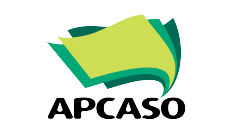Civil society and communities living with and affected by HIV, TB, and malaria play a central role towards the success of the implementation of the Global Fund grants. Be it global or national level, civil society and communities partake in decision-making processes as part of the Global Fund Board, consult and advocate with other stakeholders within the Country Coordinating Mechanism (CCM) affairs such as in monitoring ongoing grant implementation at country level, and implement the country grants directly as Principal or Sub-Recipients[1]. However, challenges remain in ensuring that civil society and communities are effectively and meaningfully engaged in Global Fund processes. For instance, a study conducted by APCASO in 2015 shows that many civil society organizations lacked the opportunity to engage in pre-meetings for country dialogues related to development of country funding requests[2]. While such issues have improved over time, the same report observed that the lack of information about the Global Fund as well as channels for exchange continue to hinder civil society organisations from engaging in the Global Fund process. There were also factors that were identified to have affected civil society relationships with each other, such as the “destabilizing influence of Global Fund funding, which creates competition among organizations and gets in the way of creating coalitions” as well as unequal relationships among civil society partners that limits the engagement of other civil society organizations.
Under the 2020-2022 Funding Cycle, the Global Fund has committed more than US$14B to fight the pandemics of HIV, tuberculosis, and malaria[3]. Of this, around US$2.2B have been allocated to eligible countries in Asia-Pacific through country and multicounty grants. Of the 56 available grants covering 20 countries in the region, 25% of these grants have now been approved and are currently in their implementation period, while the rest are still in the process of technical and operational review as of July 2021. An additional US$72M has been allocated as Matching Funds in at least 10 countries in the region to incentivize focus in strategic Global Fund priorities[4]. These Matching Funds revolve around addressing specific community, rights, and gender (CRG) issues, which is aligned with the Global Fund’s CRG Strategic Initiative – a US$15M catalytic investment to ensure meaningful engagement of community and civil society in the Global Fund processes[5].
As these grants commence under the 2020-2022 Funding Cycle, there is a need to identify the stakeholders who will be engaging in the overall Global Fund process in the different layers and levels of engagement. Of particular importance will be to map out the various civil society and affected communities who are engaging in the entire Global Fund process: what their roles are, and in which capacity they are engaging with the Global Fund process. Along with this will be the need to identify the various influences that enables or deters the engagement of civil society and key population partners in the Global Fund response, and to identify the different CRG needs and priorities that civil society and communities involved in the country response that can leverage further support through peer-to-peer technical assistance under the Global Fund CRG Strategic Initiative.
Objectives
APCASO, as the Asia Pacific Community, Rights, and Gender (APCRG) Platform host, conducted a scoping exercise on the engagement of civil society and key and vulnerable population-led organizations working across HIV, TB, and malaria in relation to the Global Fund process in the country. This exercise has three main objectives:
- To map various civil society and key and vulnerable population-led organizations in the country level, which have engaged in varying levels across the entire Global Fund Funding Cycle at the country level, as well as their relationships with each other and in relation to the Global Fund mechanisms such as the CCM
- To understand the enabling and disabling factors that affect the engagement of civil society and key and vulnerable population-led organizations in the country level in their engagement with the Global Fund Funding Cycle
- To identify CRG-related needs and priorities of civil society and key and vulnerable population-led organizations who are engage with the Global Fund and identify how the APCRG Platform can support in responding to these needs
[1] https://www.theglobalfund.org/en/civil-society/
[2] https://apcaso.org/apcrg/wp-content/uploads/2020/01/Global-Fund-Realities-on-the-Ground_APCASO.pdf
[3] https://www.theglobalfund.org/media/10103/corporate_2020resultsreport_report_en.pdf
[4] https://www.theglobalfund.org/media/9372/fundingmodel_2020-2022matchingfunds_guidance_en.pdf
[5] https://www.theglobalfund.org/media/9948/crg_2020-06-strategicinitiative_update_en.pdf

